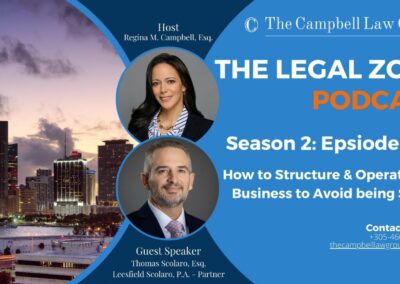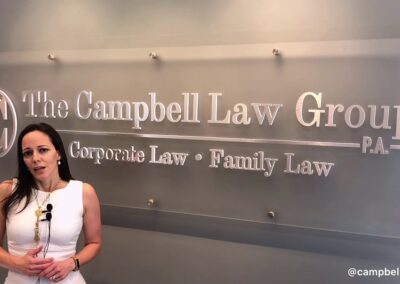In an increasingly competitive business landscape, it is becoming more and more important to nurture professional relationships. Unfortunately, not all individuals or entities see the importance of maintaining good relations – many seek to harm them with the goal of causing financial loss and other damage. Even those who used to work for the business may damage corporate partnerships by stealing trade secrets or breaking confidentiality agreements.
There are various ways in which tortious interference can occur, but here are some examples:
- A vendor offering unreasonably low prices to a buyer can result in the buyer breaching a contract with another business. This is known as “predatory pricing” and is a common form of tortious interference in the business world.
- A former employee uses commercially sensitive information to compete against you and/or interfere with your contractual or business relationships.
- A third-party making threats or coercive demands to a business or another party in order to gain an advantage in a contractual or business relationship.
- Refusing to perform a duty or obligation, such as delivering goods, can also be an act of tortious interference. This can impair the plaintiff’s ability to meet its contractual obligation and cause financial loss.
The above are just a handful of tortious interference examples. Tortious interference can have significant financial consequences for businesses, including lost profits and damage to reputation.
Understanding the Two Types of Business Relationships Vulnerable to Tortious Interference in Florida
In the state of Florida, two types of business relationships can be vulnerable to a tortious interference claim. These are contractual business relationships and advantageous business relationships.
Contractual business relationships refer to situations where there is an enforceable contract between two parties, such as a non-disclosure agreement, a purchase agreement, or any other type of contractual agreement. If a third party interferes with such a contract, by inducing one party to breach the terms of the contract or by disrupting the contract in some way, it may be considered tortious interference. In such cases, the affected party may seek damages from the interfering party.
On the other hand, an advantageous business relationship is not necessarily defined by a contract, but it still brings value to a business. Examples of such relationships include customer relationships, referral sources, or other types of business relationships that are beneficial to the business. If a third party intentionally disrupts or interferes with these relationships without justification, it may be considered tortious interference. As with contractual business relationships, affected businesses may seek damages from the interfering party.
Businesses in Florida should be aware of the two types of business relationships recognized in tortious interference cases and take steps to protect themselves. If you believe your business is a victim of tortious interference, it is advisable to seek the guidance of an experienced attorney who specializes in complex business litigation. A skilled attorney can assess the circumstances of the interference and advise you on the best course of action to protect your business interests.
Tortious Interference in High-Profile Divorces
Under Florida law, tortious interference with a parent-child relationship is a type of legal claim that can arise when one party interferes with another parent’s time sharing or as is also known custodial rights. This interference can come from various sources, including an ex-spouse, a friend of the parent, or other extended relatives.
To establish a successful claim for tortious interference with a parent-child relationship, also known as custodial interference, in Florida, several elements must be satisfied, including: •
- The claimant must have legal parental rights over a minor child.
- A third party not involved in that parental relationship must have intentionally interfered with those rights, which can include preventing or limiting child access, making false allegations against the parent, or denigrating the parent in front of the child.
- The interference must have caused harm to the parent-child relationship, which can result in a range of damages such as emotional distress, loss of companionship, or loss of affection between the parent and child.
Tortious interference can be a common issue in high-net-worth family law cases. When such interference occurs, the parent being prevented from having a meaningful relationship with their children may have grounds to pursue a tortious interference claim. However, proving these claims can be challenging and require the help of an experienced attorney. Documenting any instances of interference and gathering evidence to support the claim is important.
In high-profile divorces, where public image and reputation are also at stake, handling such claims carefully becomes even more critical. The media scrutiny and public attention can add a layer of complexity to the situation, and the parties involved may be motivated to settle the case privately to avoid further negative publicity. An experienced attorney can help navigate these complexities and work towards a resolution that protects the parent-child relationship and the best interests of the children involved.
The Campbell Law Group: Expert Legal Representation for Tortious Interference Cases
To pursue cases of Tortious Interference, it is essential to seek the counsel of an attorney who possesses expertise in complex business legal matters and litigation. It is even better if the attorney understands business dynamics and has a financial background. At the Campbell Law Group, we specialize in complex business litigation and have experience litigating cases that involve cross-border implications and jurisdictional issues.
Our firm accepts cases from all over South Florida, such as Miami Beach, Coral Gables, Coconut Grove, South Miami, Pinecrest, Brickell, Edgewater, Doral, and Wynwood, as well as cases in Broward and Palm Beach County, Tampa, Orlando, and the rest of Florida. Please contact us for more information regarding how our firm can help you.
Frequently Asked Questions
What are the elements of a tortious interference case?
To pursue a successful tortious interference case in Florida, it is crucial to establish each element of the claim. Our lawyers can assist you in meeting these requirements by gathering evidence and guiding you through each step of the process. The following elements must be proven:
- The existence of a contractual or advantageous business relationship between the plaintiff and another party;
- The defendant (third party) was aware of the relationship;
- The defendant intentionally disrupted the relationship or induced one party to breach the contract with the other;
- The defendant’s actions were unjustified; and
- The plaintiff suffered damages as a direct result of the interference.
Additionally, proving causation is critical to the case, meaning the plaintiff must demonstrate that the breach of contract or disruption of the business relationship would not have occurred without the third party’s interference.
What damages are available through a tortious interference claim?
Florida businesses impacted by tortious interference have the right to pursue economic damages from the defendant. These damages aim to compensate the plaintiff for any losses incurred that would not have happened if not for the defendant’s actions. The amount of damages is determined by the actual losses suffered, and therefore, it varies based on the specifics of the case.
Is there a statute of limitation of tortious interference cases?
Under Florida law, if you suspect that you have a tortious interference claim, you have four years from the date of cause of action to file your suit. However, it is best to act promptly as crucial evidence may be lost, and facts may become obscured over time.
How can a business attorney help?
If you suspect that your business has been a victim of tortious interference, seeking the assistance of an experienced attorney is crucial. A skilled attorney can assess your case, inform you of your legal rights, and recommend appropriate actions. Additionally, they can collect evidence on your behalf, examine contract language and potential breaches, negotiate a settlement, and provide other valuable services. Choosing not to work with a competent attorney can be a costly mistake your business cannot afford.











